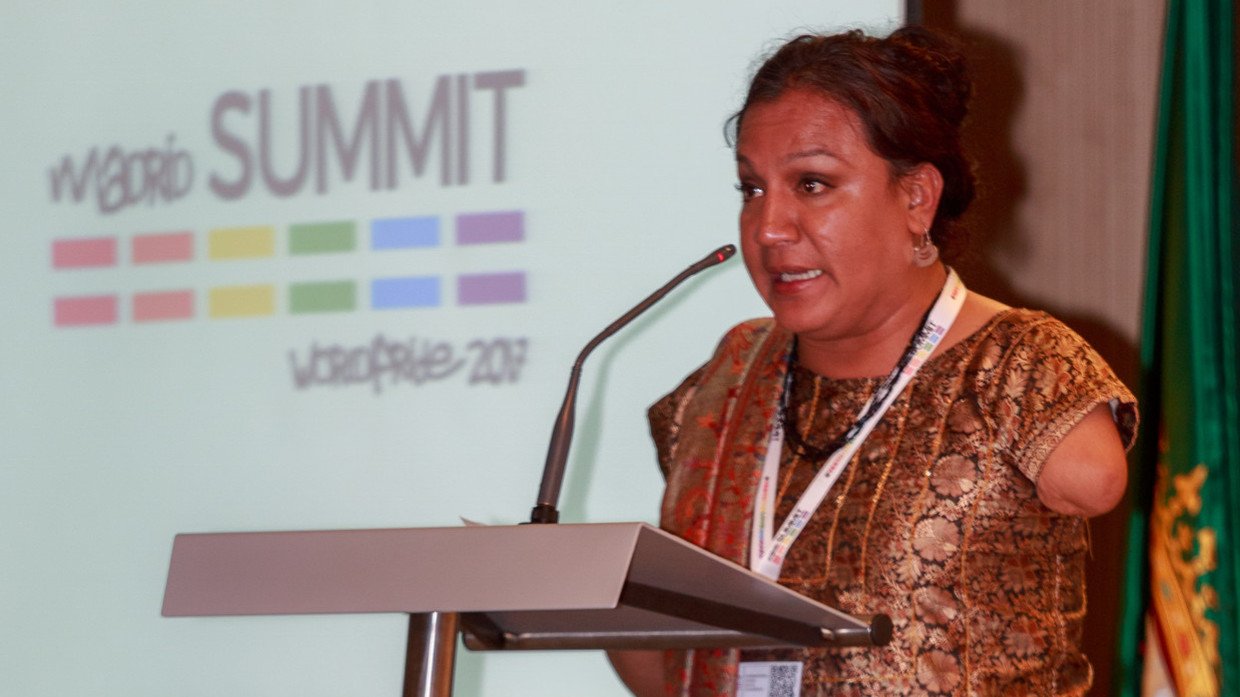The Amaranta Gómez Regalado school in Santiago, Chile, operates much like any other school, with a few key differences: It’s not funded by the Chilean government, and all of its pupils are transgender.
The school, which opened its doors in 2018, is the first of its kind in Latin America. Named after Amaranta Gómez Regalado, a Mexican transgender politician and LGBT activist, the school caters to 28 children aged between 6 and 17. They learn math, science, history, English and art, but for the children, the lessons are less important than the acceptance they find at the school.

Angela, a 16-year-old student told AP that she was bullied at her old school. “I just wanted to die,” she said. “I didn’t want to exist, because what they did to me made me feel awful.”
“I’m happy here because there are many other kids just like me,” another six-year-old pupil said.
Even in the liberal west, the idea of transgender children is a controversial one. At one British school with 17 transgender students, a whistleblowing teacher has claimed that children were pressured into identifying as trans to fit in with their peers. A London clinic also found that a third of its young transgender patients had “moderate or severe autistic traits,” and an expert recommended exploring this link before declaring a child ‘transgender’.
Still, transgender children in many western countries can access dedicated LGBT therapists, and even puberty-blocking hormones. The morality and legality of this treatment has been the subject of several high-profile court battles in the US.
Chile is a more conservative society, and the Catholic Church remains the country’s dominant religion, despite a sex-abuse scandal and coverup that led to all of the country’s bishops resigning last year. The church’s influence meant that Chile only legalized divorce in 2004, and lifted its blanket ban on abortion in 2017.
Transgender adults are allowed to change their names and gender on birth certificates since last year, but teenagers need their parents’ consent, and children under 14 are forbidden from doing so.
While the country is beginning to move in a more socially liberal direction, the Amaranta Gómez Regalado school is not funded by the Chilean government. Instead, Evelyn Silva, president of trans rights group the Selenna Foundation, and school coordinator Ximena Maturan funded the first year of operations out of their own savings. The school’s teachers are all volunteers.
Also on rt.com ‘I’m not doing it for fun’: German MP returns to parliament as a transgender womanAs of March, parents will have to pay around $7 per month to send a child to the school. Silva and Maturan have hired a PR firm to fundraise some extra cash, and they have applied for a $2,000 bursary from an international transgender organization. More students and non-students have signed up to its part-time summer school program, and staff foresee further expansion.
One of the school’s professors told AP that while the school provides inclusivity and respect, the Chilean government should endeavor to make all public schools trans-friendly.
“If it does not,” she said, “this school, by common logic, should grow.”
Like this story? Share it with a friend!
